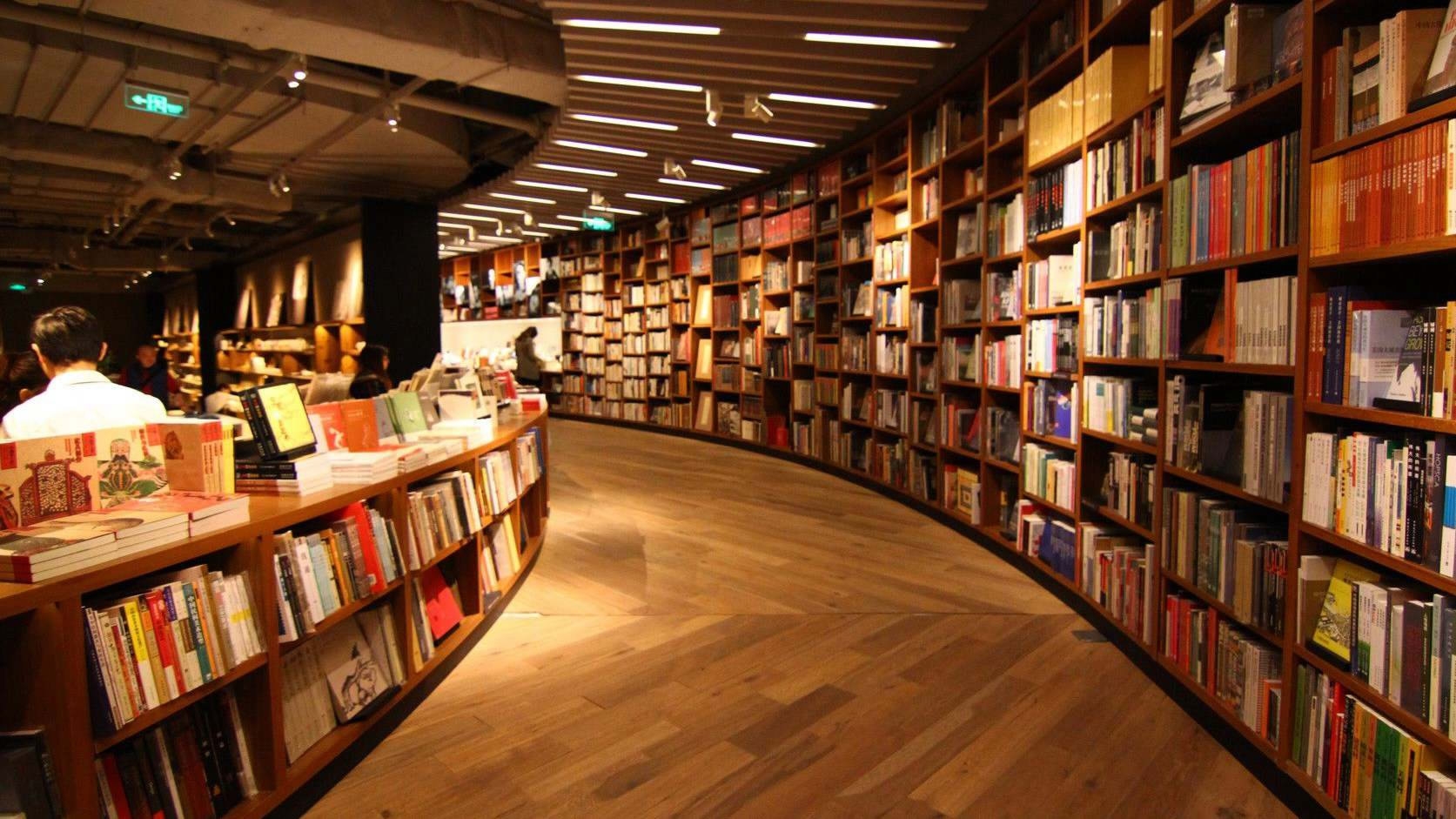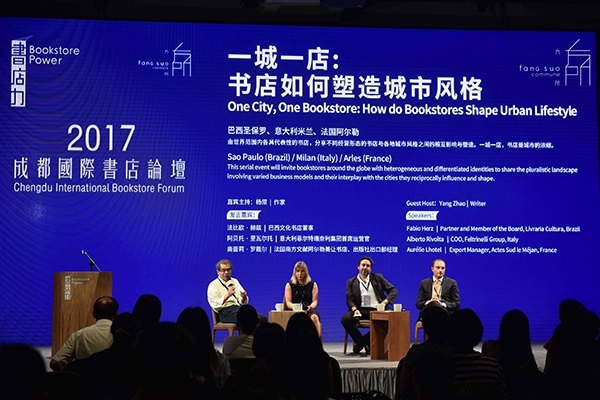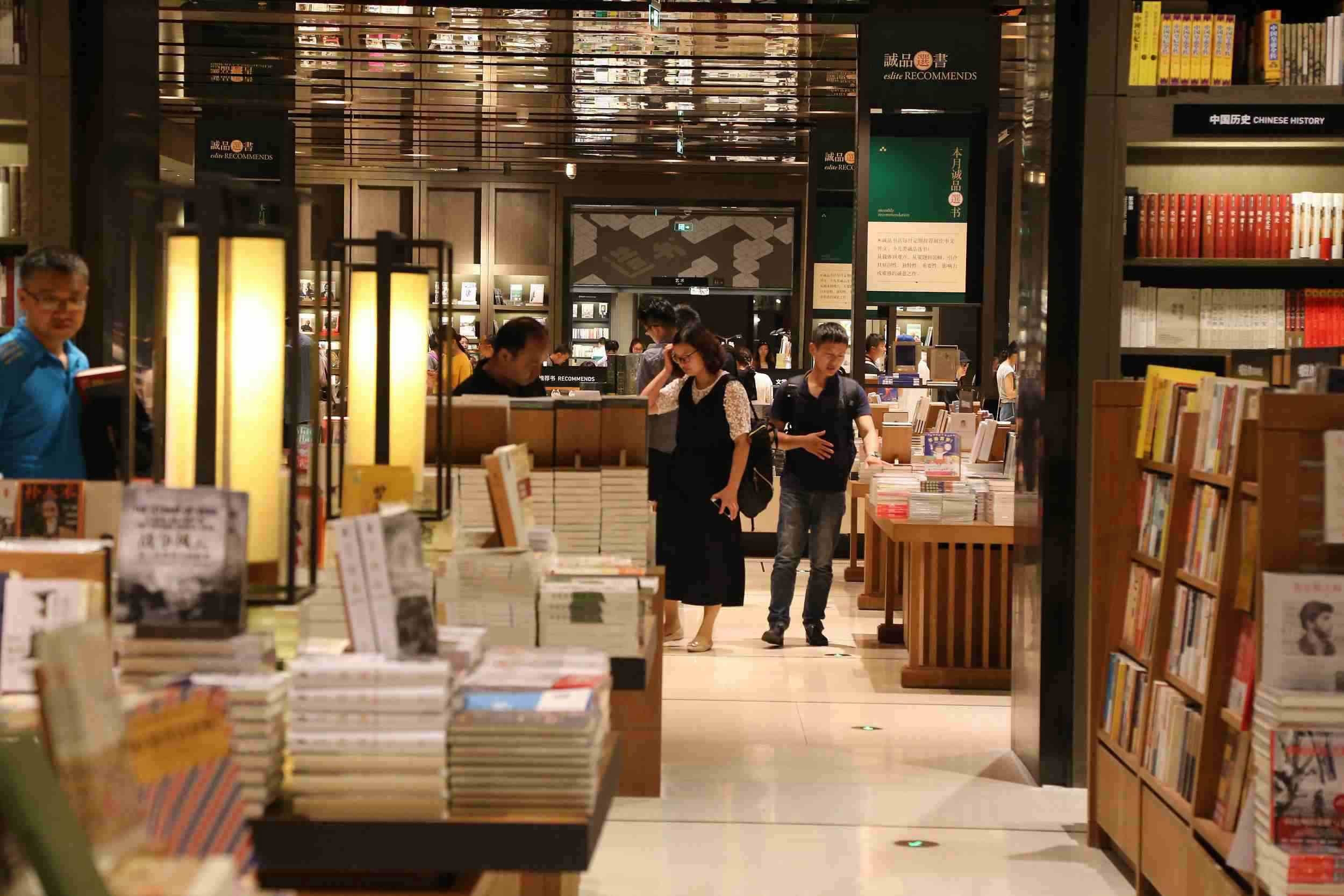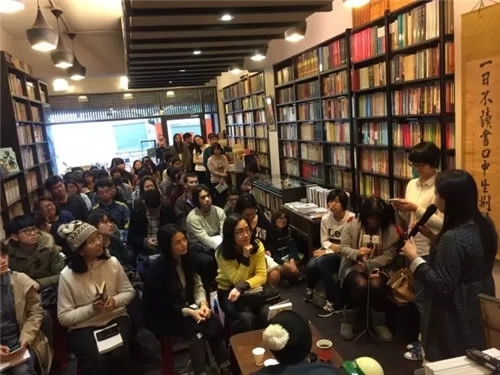
Culture
21:10, 11-Sep-2017
Bookstores adopt new role in urban life
CGTN

“Will printed books die out of history?” It is a frequently discussed and debated question in recent years, ever since digital reading and online bookstores started booming. However, the increasing number of bookstores in cities around the globe might already offer an answer to the question.
During the past weekend, 2017 Chengdu International Bookstore Forum was held in the provincial capital of southwest China’s Sichuan, and defining a new role for the bookstores in the cities has become an attractive topic for the attendees.
In a seminar dubbed “One City, One Bookstore: How do Bookstores Shape Urban Lifestyle” on an opening day, representatives from Brazil’s Sao Paulo, Italy’s Milan and France’s Arles talked about the relations and interactivities between bookstores and cities they settled in.

The 2017 Chengdu International Bookstore Forum. /Photo via The Paper
The 2017 Chengdu International Bookstore Forum. /Photo via The Paper
“I don’t think bookstores are just places to sell books. They have far rich meaning than that,” said Fabio Herz, chief of the Livraria Cultura, a chain of bookstores in Brazil. He said that bookstores in Brazil have a history of more than 60 years.
According to Herz, the first one was founded by a couple fled Germany during World War Two, and by lending books to the refugees, they expected that books could help them to get rid of the shadows cast by the war.
Herz believed that bookstores should help to shape the styles of the cities and become the cultural center of the cities. “We have 18 stores in Brazil, five in Sao Paulo. Averagely, there would be 11 events each day, such as cuisine culture, reading gatherings, book signings and even concerts,” said Herz.

Poster for the 2017 Chengdu International Bookstore Forum. /Photo via The Paper
Poster for the 2017 Chengdu International Bookstore Forum. /Photo via The Paper
In Arles, a city with only 50,000 residents, bookstores have close bonds with an annual photography festival. According to Aurelie Lhotel, manager of export of the Actes Sud le Mejan, a bookstore chain in Arles, the sales of the art books will see an obvious increase every year during the photography festival.
Besides the signing events, the bookstores will hold wine parties every Saturday, inviting readers to share their reading experience while enjoying the wine.
Italy’s Alberto Rivolta, sales director of publishing company Feltrinelli Group, said that he hopes that all bookstores could find a way of localization, to adjust their styles and fit in the cities. For instance, bookstores besides the Roman Senate could put various kinds of commodities on their shelves while those near the train stations could provide quick services to passersby.
In China, after going through years of downturn, the bookstores have now found their new places. Instead of fading out together with the printed books, the number of bookstores is in fact rising.

People visit Eslite Bookstore in Suzhou, Jiangsu Province. /VCG Photo
People visit Eslite Bookstore in Suzhou, Jiangsu Province. /VCG Photo
On April 23 this year, marked as the World Book Day, there are at least four new bookstores celebrated their opening. Most of the survived bookstores have embraced their new roles.
The Sisyphe Bookstore, a bookstore chain in China, has at least 30 bookstores and over 20 coffee bars across the country. The One-Way Street bookstore, one of the most well-known independent bookstore chain in China, has also transformed into a multimedia, which sells not only books but also an idealized lifestyle by throwing cultural salon or other events.
Taiwan’s Eslite Bookstore also opened its first branch on the Chinese mainland in 2015.
The transformation of the bookstores is a global trend as well. Attendees to the 2017 Chengdu International Bookstore Forum agreed that reforming the business mode is the one thing that has been jointly agreed by most bookstore owners.

People attend salon at a bookstore. /Photo via Chengdu Daily
People attend salon at a bookstore. /Photo via Chengdu Daily
“At least 70 percent of our turnover was brought by adopting creativity and reforms, and only 30 percent came from the sales of books,” said Alberto Rivolta.
He said bookstores could not force readers to purchase books from online bookstores, but they could attract them by forging a community which has a more powerful strength.
Rivolta said they hope bookstores could become a community where readers could find the resonance from the cities, and they could help shape the cities into places where people love and enjoy a living.
1522km

SITEMAP
Copyright © 2018 CGTN. Beijing ICP prepared NO.16065310-3
Copyright © 2018 CGTN. Beijing ICP prepared NO.16065310-3